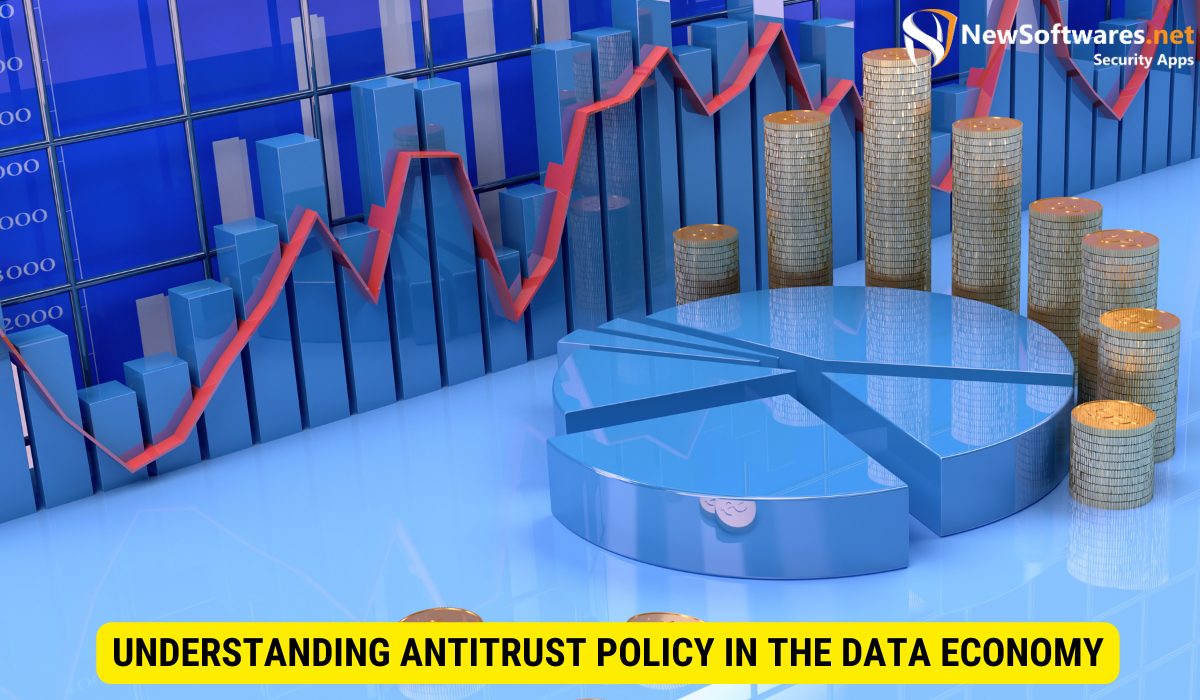Antitrust policies in the data economy are increasingly scrutinized for their role in balancing corporate data practices and consumer privacy. These policies, originally designed to prevent monopolistic behaviors, now face the challenge of addressing the complexities of data commodification in the digital age. The core issue revolves around whether these policies effectively regulate the sale of privacy or merely oversee the transaction of private data.
The rapid growth of the data economy has raised numerous questions regarding the intersection of antitrust policy and data privacy. As companies collect and leverage vast amounts of personal information, concerns about consumer privacy have become paramount. This review delves into the multifaceted issue of antitrust policy in the data economy, exploring the intricate connections between selling privacy and private data.
Understanding Antitrust Policy in the Data Economy

The evolution of antitrust policies has closely followed the advancements in the data economy. Initially designed to prevent monopolistic practices and protect consumer welfare, antitrust laws had to adapt to the digital age. Data plays a crucial role in the modern economy, with companies like Google and Facebook relying on large-scale data collection for personalized advertising and other targeted services.
In today’s interconnected world, where data is often referred to as the “new oil,” antitrust policies have become increasingly important. The rapid growth of technology companies and their ability to amass vast amounts of user data has raised concerns about potential anti-competitive behavior and the need for regulatory oversight.
The Evolution of Antitrust Policies
Antitrust policies have transformed significantly over time. Traditional approaches focused on pricing and market share, but increasingly, attention has shifted towards non-price effects and the dominance of data-driven firms. The emergence of internet giants and their unparalleled access to consumer data required regulators to consider new parameters to preserve competition and ensure consumer protection.
One of the key turning points in the evolution of antitrust policies was the Microsoft antitrust case in the late 1990s. The case highlighted the potential harm caused by a dominant player in the technology industry and led to a reevaluation of antitrust enforcement. Since then, regulators have been grappling with the challenges posed by the data economy and the need to strike a balance between fostering innovation and preventing anti-competitive practices.
Key Principles of Antitrust Policy in the Data Economy
Antitrust policy in the data economy operates on several key principles. First and foremost is the prevention of anti-competitive behavior, such as leveraging data to exclude or disadvantage competitors. The accumulation of vast amounts of data by a single company can create barriers to entry for potential competitors, stifling innovation and limiting consumer choice.
Second, the enforcement of fair and transparent practices is essential to protect consumer privacy. With the increasing reliance on data collection, it is crucial to ensure that companies handle user data responsibly and with the utmost respect for privacy rights. This includes providing clear and concise privacy policies, obtaining informed consent for data collection, and implementing robust security measures to safeguard sensitive information.
Lastly, antitrust policy must strike a delicate balance between fostering innovation and preserving competition. While it is important to encourage technological advancements and the development of new business models, it is equally crucial to prevent the concentration of power in the hands of a few dominant players. By promoting competition and preventing the abuse of market power, antitrust policy can help create a level playing field for both established companies and innovative startups.
In conclusion, the data economy has presented unique challenges for antitrust policy. As technology continues to advance and data becomes increasingly valuable, regulators must adapt and evolve their approaches to ensure fair competition and protect consumer interests. By addressing anti-competitive behavior, enforcing fair practices, and striking the right balance between innovation and competition, antitrust policy can play a vital role in shaping the future of the data economy.
The Intersection of Privacy and Private Data
In the context of the data economy, privacy and private data are intricately interconnected. Privacy refers to an individual’s ability to control the collection, use, and disclosure of their personal information. Private data, on the other hand, represents the valuable assets companies collect and monetize. Understanding the relationship between the two is crucial to comprehending the larger debate around selling privacy and private data.
Defining Privacy in the Data Economy
Privacy encompasses a complex web of issues in the data economy. It involves consent, transparency, data breach prevention, and individuals’ ability to exercise their rights over their personal information. Debate rages about what constitutes adequate privacy safeguards, particularly as data analytics and artificial intelligence become ever more sophisticated.
The Role of Private Data in Digital Markets
Private data is the fuel that powers the digital economy. Companies collect vast amounts of consumer data to generate insights, improve products and services, and target advertising. However, the commodification of private data raises concerns about consumer exploitation and the potential for misuse. Striking the right balance between utilizing private data for innovation and protecting consumer privacy remains a major challenge.
The Controversy: Selling Privacy or Private Data?
The advent of data-driven business models has fueled a contentious debate surrounding the selling of privacy and private data. Some argue that companies offer “free” services in exchange for personal information, effectively selling privacy. Others contend that it is the private data itself that is being sold to third-party advertisers and marketers.
The Debate Over Data Commodification
Proponents of data commodification argue that individuals willingly trade their personal information for valuable services like social media and search engines. They view personal data as a form of currency, enabling users to access free platforms. However, critics maintain that individuals are often unaware of the true value of their data and the extent to which it is being monetized.
Ethical Implications of Selling Private Data
While there may be financial benefits to selling private data, ethical concerns persist. The collection and use of personal information can lead to privacy breaches, identity theft, and manipulation. Moreover, the opacity surrounding data collection and sharing practices raises questions about consent and individuals’ control over their own information.
The Impact of Antitrust Policies on Data Privacy
The cogency of antitrust policies directly affects data privacy. Striking the right balance between fostering competition and protecting consumer welfare is crucial in shaping the data economy. Any regulatory measures, therefore, must consider their impact on both competition and privacy.
Regulatory Measures and Their Effectiveness
Various regulatory measures have been proposed and implemented to safeguard data privacy in the data economy. Increased transparency requirements, enhanced consent mechanisms, and stricter enforcement of anti-competitive practices all play a role. However, the effectiveness of these measures remains an ongoing topic of debate.
Potential Consequences for Consumers and Businesses
The interplay between antitrust policies and data privacy has far-reaching implications. Stricter antitrust regulations may limit the dominance of data-driven firms but could also stifle innovation. Stronger privacy protections may enhance consumer trust and control over personal information, but they could also impact the availability and quality of digital services.
Future Perspectives on Antitrust and Data Privacy

The future of antitrust policy and data privacy is uncertain, with ongoing technological advancements and evolving consumer expectations. Policymakers must anticipate and adapt to emerging trends to ensure that competition flourishes while upholding consumer privacy rights.
Predicted Trends in Data Economy Regulations
As organizations grapple with the complexities of the data economy, regulators are likely to continue refining antitrust policies and data privacy regulations. Stricter rules regarding data collection and sharing practices, heightened scrutiny of dominant market players, and increased fines for privacy breaches could all shape future data economy regulations.
The Road Ahead: Balancing Privacy and Profitability
The path forward involves striking a delicate balance between privacy and profitability. Achieving this balance requires collaboration between policymakers, regulators, businesses, and consumers alike. By fostering competition, protecting consumer privacy, and promoting responsible data practices, we can navigate the data economy’s complexities successfully.
Key Takeaways
- Antitrust policy in the data economy is essential for upholding competition and consumer welfare.
- Data privacy and private data are closely intertwined and require careful consideration.
- The debate surrounding selling privacy or private data highlights ethical concerns and calls for transparency.
- Antitrust policies impact data privacy, necessitating a balance between competition and protection.
- The future of antitrust policy and data privacy requires ongoing adaptation to new technological advancements.
FAQs
How does antitrust policy affect data privacy?
Antitrust policy shapes the rules for competition in the data economy. By enforcing fair practices, preventing anti-competitive behavior, and fostering innovation, antitrust policy can indirectly impact data privacy.
Are individuals selling their privacy in the data economy?
The notion of individuals selling their privacy is a matter of interpretation. While some argue that individuals exchange personal information for valuable services, others contend that the true value of personal data is often underestimated.
Can data commodification be ethically justified?
The ethical implications of data commodification are subjective and vary depending on different perspectives. While proponents argue that individuals benefit from exchanging personal data, critics raise concerns about potential exploitation and the lack of informed consent.
How can regulators strike a balance between competition and privacy?
Striking a balance between competition and privacy requires careful consideration. Regulators must ensure that anti-competitive practices are curbed while protecting consumer privacy through measures like transparency requirements, consent mechanisms, and effective enforcement.
What does the future hold for antitrust policy and data privacy?
The future of antitrust policy and data privacy will likely involve evolving regulations and ongoing debates. As technological advancements continue, policymakers will need to address emerging challenges and ensure fair competition and robust privacy protections.
Conclusion
The intersection of antitrust policy and privacy in the data economy presents a complex challenge. While antitrust laws aim to regulate market competition and protect consumer interests, their effectiveness in the context of data privacy and the commodification of personal information remains a contentious issue. As data continues to be a valuable asset in the digital age, the need for a nuanced approach in antitrust regulations that simultaneously fosters innovation and protects consumer privacy becomes increasingly evident.
